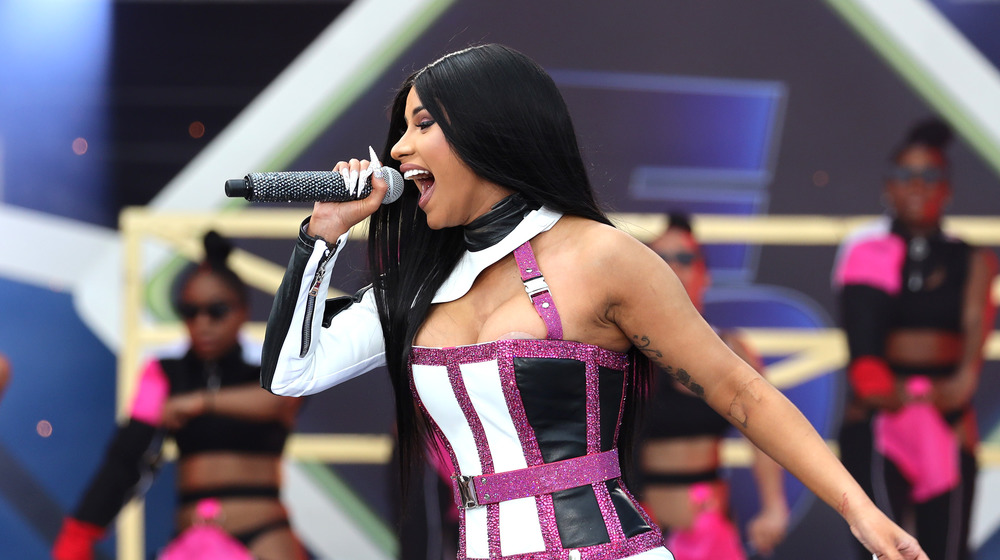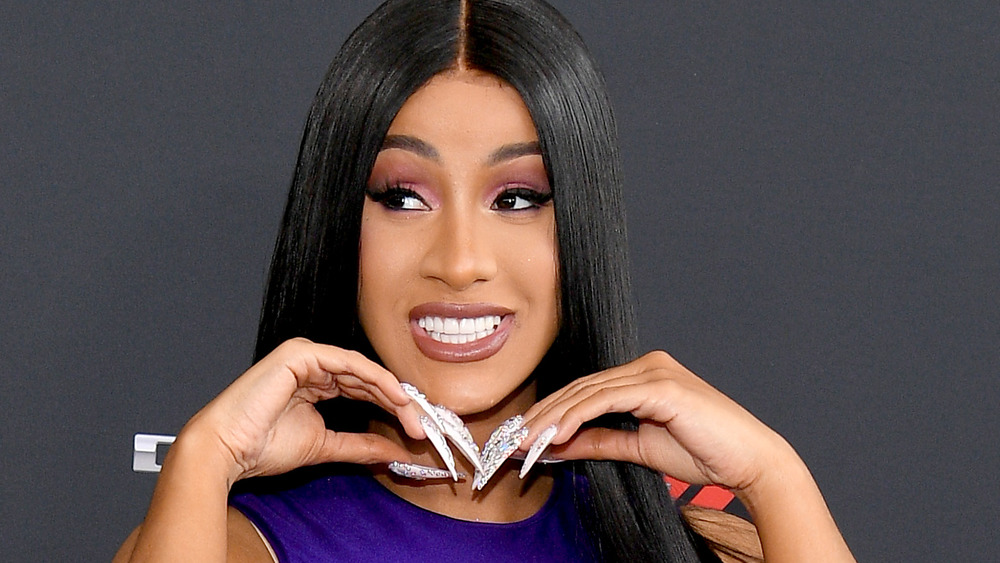Here's Why Cardi B's Mixtape Artwork Has Landed Her In Some Legal Hot Water
Cardi B has been embroiled in a legal dispute for more than a year due to her use of a photo of model Kevin Brophy Jr.'s back tattoo that appears on the cover of her debut 2016 mixtape Gangsta Bitch Music Vol. 1. On Friday, Cardi's argument that she used the picture legally because the image was protected under transformative fair use was rejected by a judge, which means the case will now go to trial and be heard by a jury (via Pitchfork). Brophy's legal argument claims that the image of his likeness was used in "a misleading, offensive, humiliating and provocatively sexual way" on Cardi's album cover.
In case you've never seen the album cover, it is indeed rather graphic. The designer who created the album cover digitally superimposed Brophy's tattoo onto the back of the man in the photo (via The Hollywood Reporter). Gangsta Bitch Music Vol. 1. peaked at number 6 on the Billboard charts and featured multiple successful singles (Billboard).
Why the judge rejected Cardi B's claim
The reason U.S. District Court Judge Cormac Carney gave for rejecting Cardi's claim that the image she used was protected under transformative fair use was, "To constitute a transformative fair use, the revised image must have significant transformative or creative elements to make it something more than mere likeness or imitation. A reasonable jury in this case could conclude that there are insufficient transformative or creative elements on the GBMV1 cover to constitute a transformative use of Plaintiff's tattoo" (via The Hollywood Reporter).
The judge further explained that because the main elements of the tattoo in question were not themselves changed, not enough creative changes were made to the image to claim transformative fair use. In other words, the image wasn't actually "transformed" much. The judge's decision reads: "Most significantly, defining elements including the tiger and snake remain virtually unchanged," continues the decision. "Under these circumstances, a jury will have to decide the merits of Defendants' defense."

